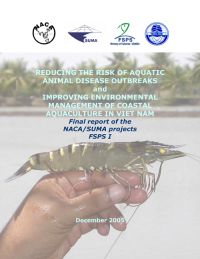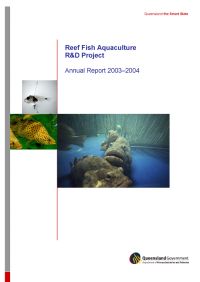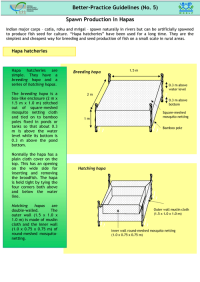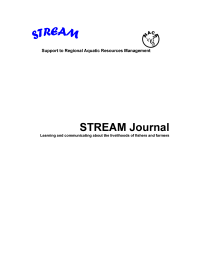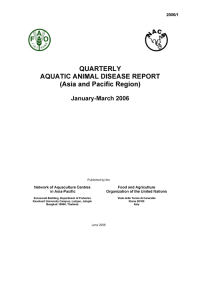This report describes the experiences and lessons learnt from activities conducted by NACA in Viet Nam to support the sustainable development of the aquaculture sector using better management practices and harmonised strategies for the management of aquatic animal health and environmental problems. Achievements included reducing the risk of diseases from seed and on farms, developing capacity at the provincial and national levels, developing an effective surveillance system and wide dissemination of experiences.
This is the annual report (2003-2004) of the Reef Fish Aquaculture R&D Project, based at the Northern Fisheries Centre, Cairns. The project provides a core platform for a suite of R&D projects addressing the feasibility of aquaculture technologies for high-value marine finfish species. This report outlines progress on the three core components of the programme, namely broodstock management and spawning, live prey production, and larval rearing and grow-out.
In this issue: Policy development as a theme and policy briefs as a genre. Decriminalising Cambodian family-scale fishers through a livelihoods approach to law reform. Longer pond leases in Orissa. One-stop Aqua Shop - a "one-window delivery" service center for aqua-farmers and fishers. Fisheries and aquaculture policy formulation process in Pakistan. Improving the international marine ornamental fish trade to sustain and improve the livelihoods of poor people involved in the trade. About the STREAM Journal. About STREAM.
